Chris DeRose
I have always known since I can first remember that animals had feelings and suffer like us but there are two incidents that really solidified it for me…
I have always known since I can first remember that animals had feelings and suffer like us but there are two incidents that really solidified it for me…
In 1979 my acting career was going along well, and I was still considered a rising star in the Hollywood scene. I was taking an acting class and in the middle of the class, a dog walked into the room. He looked like some kind of mix between a German shepherd and a collie. He just walked himself right in. No one knew where he had come from.
Q: When did you first realise that animals are like us in that they feel pain and pleasure, and have emotions like happiness, sorrow, fear?
Chris: I have always known since I can first remember that animals had feelings and suffer like us but there are two incidents that really solidified it for me.
In 1979 my acting career was going along well, and I was still considered a rising star in the Hollywood scene. I was taking an acting class and in the middle of the class, a dog walked into the room. He looked like some kind of mix between a German shepherd and a collie. He just walked himself right in. No one knew where he had come from. There were about 50 students in the class and out of all those people, this dog chose to come and sit at my feet. I guess the other students assumed he was my dog so I just kind of shrugged and said “No I’ve seen him before.”
The dog stayed by my side for the rest of the day, and I took him home with me that evening. I bought him some food and set it on a plate out on the patio but he wanted to come inside, so I let him in. Later that night, after I had gone to bed, the dog came into my bedroom. I looked at him and said “All right, if you gotta be in here, stay down on the floor.” I was already having a lot of misgivings about this arrangement, even for just the one night. The dog was now cruising around my bedroom like he owned the place. A minute later, he hopped up onto the bed and wagged his tail at me. I knew I was losing this battle of wills, but I tried once more.
“Okay, so you’re here.” I said. “But stay down there by the foot of the bed.” No. He lay down with his head on the pillow, his body alongside mine. And then I felt his butt pushing against me, like he was shoving me over to make more room for himself. I rolled over and looked at him, and he looked at me, and I swear to you he was grinning. All I could think was, I’m in bed with a dog, and he’s laughing at me.
But I also realized then, as never before, how much intelligence and personality animals have.I guess people who have companion animals know that just from living with them. But I’d never had any kind of animal before.
In early 1981 one of the most important moments in my life occurred. I entered a vivisection lab in Los Angeles with a friend named Bob to document what goes on in there. The laboratory staff was out to lunch, and we just walked in through a side door. What we found changed my life forever.
Dogs, recovering from surgery involving experimentally produced ulcers. Only they weren’t recovering – they were dying. And they were obviously in terrible pain.
In one of the cages, I saw a young Alaskan malamute, not even full-grown. He was whimpering. I reached through the bars of his dirty cage and petted him. He looked at me and tried to get up, but he was too weak, too sick, in too much pain.
I carefully lifted him up so that Bob could take pictures of him. The dog tried to lick my face through the bars. Maybe he thought I had come to save him. I saw the infected stitches in the belly, oozing pus and blood. I saw the filthy, encrusted tube that was draining fluid out of his stomach. And as I held him, I saw the rotted stitches start to come apart and his guts start to spill out.
As gently as I could, I let him down onto the floor of the cage and placed my hand on him,trying to comfort him in those last few moments of his life. I was still holding him when at last he took his final struggling breaths and died. It seemed to take a lifetime. I was close to tears as I looked at the body, and I thought, this isn’t science-this is madness.
Standing there, looking at that gentle animal lying dead in a bloody cage, I made a promise to him and to myself, that I would never forget him, that I would keep on fighting vivisection until it was ended, that I wouldn’t stop until no other animal would ever have to go through what he had gone through.
At that exact moment, I knew how I’d be spending the rest of my life. It was the moment when I moved from feeling concerned and upset about vivisection to dedicating my life to stopping it. And this commitment has driven my life from that moment to the present day.
Q: Why did you decide to become vegan?
Chris: I decided to become Vegan simply because if you care about animals and people, there is no other choice but to be vegan. It’s a very simple equation – meat and dairy = animal and human suffering. Even if you don’t care about animals but are the biggest narcissist in the world, you still need to be vegan. A vegan diet has been proven to be the healthiest of all diets for humans. There is no excuse for eating meat and dairy.
Q: How long have you been vegan and was it easy for you to make the switch?
Chris: I’ve been Vegan since 1980. I did miss the cheese at first but once you realize the reality behind your food choices it is not difficult at all. When you know the truth about meat and dairy the hard thing would be to continue to eat them. I have no interest in consuming fat laden pus and diseased food.
Q: Do you have a favourite vegan recipe you’d like to share?
Chris: My favorite Vegan recipe- there are several but i will give you one: Escarole and beans. Very simple Italian peasant dish: You get several bunches of Escarole – a form of green like spinach but clearly different in taste. Blanch them and/or just Sautee them in lots of chopped or sliced garlic. Put several cans [or fresh] cannolini [white navy beans will do] into the escarole. Season with salt, black pepper and red crushed pepper. Very healthy peasant food and very inexpensive and there is no suffering in the contents. In Italian we call it scherole e facioli.
Q: What would you say to people who say they love animals and are against animal cruelty and exploitation, but still eat meat and dairy products ?
Chris: I would say to anyone who says they love animals and are against animal cruelty and exploitation but still eat meat and dairy – You are not being honest with yourself. The number one cause of animal suffering by far in this world is the meat and dairy industry. Eliminate the meat and dairy and you eliminate over 95% of the animal suffering. If you care about the animals there is nothing more important or more effective you can do than to go vegan. It is plain and simple.
Q: Tell us about your organisation Last Chance for Animals; what are its objectives? What is LCA doing to abolish animal suffering?
Chris:Last Chance for Animals is a non profit Animal Rights organization. I founded it in 1984. Our objective is to end animal exploitation and suffering in all its forms. We investigate animal cruelty and educate the public through our investigations and campaigns. We have been responsible for the biggest animal cruelty cases in U.S. history including putting the 1st people in state prison and federal prisons for animal issues. We have shut down the biggest B-dealer in the U.S. We have investigated everything from circuses to dolphin slaughter, from hog farms to wild horse round ups. We are on the verge of getting West Hollywood to go fur free. A historic first. We exposed the horrors inside of UCLA’s laboratory. I give talks all over the world about veganism and animal rights. We will do whatever it takes to end the abuse of animals. We will never stop until the last cage is open and the last chain is broken.
Q: What do you do to relax and unwind?
Chris: To relax and unwind I box and hang out with my wonderful supportive wife. We both love eating great vegan foods from all over the world.
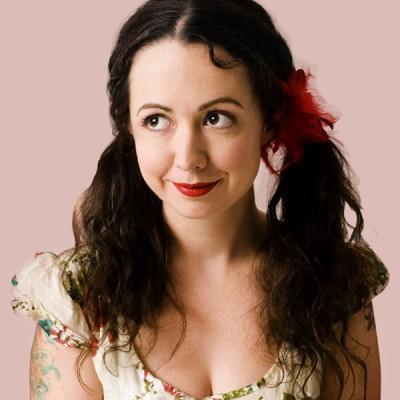
Marieke Hardy is an Australian screenwriter, blogger, radio broadcaster and reader. In addition to her regular column for ABC's The Drum, she is a senior contributor to Frankie magazine and The Age.
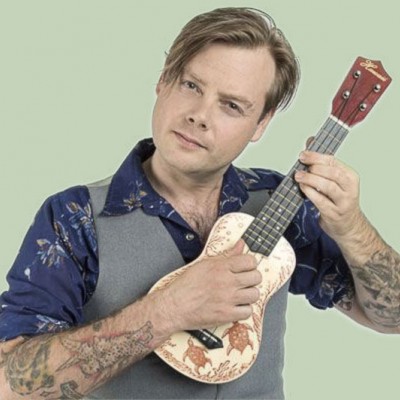
We speak with Lindsay ‘The Doctor’ McDougall, former host of the Triple J breakfast show and lead guitarist in legendary Australian band Frenzal Rhomb.
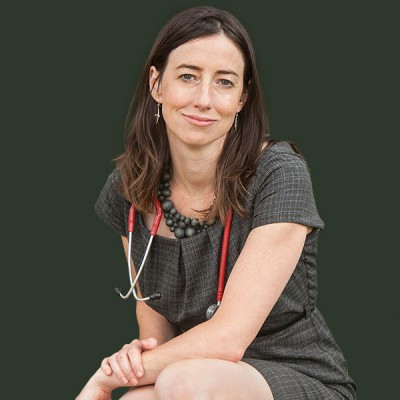
When not protecting baby harp seals in Canada and Whales in Antarctica as the Sea Shepherd ship doctor, Merryn specialises in children's health. She works with children facing developmental problems like autism and other issues like obesity, behavioural and mental health problems.
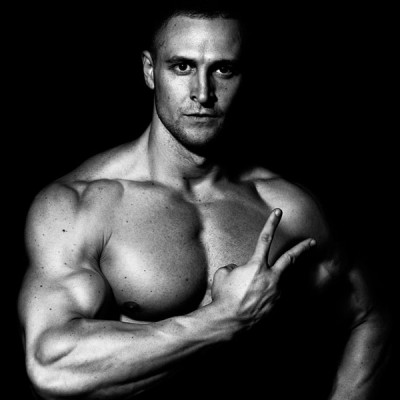
Billy Simmonds - winner of the 2009 Mr. Universe title, is an Australian Professional Natural Bodybuilder, Powerlifter, Martial Artist and Vegan. "Vegan Bodybuilding is not only possible, its optimal," he says, "within three years from first lifting weights properly and walking on a Bodybuilding stage as a novice, I had won Mr. Universe and become a Pro Bodybuilder. Steroids? Meat? Not a chance."

We talk tooth truth with vegan dentist Helen Voronina.
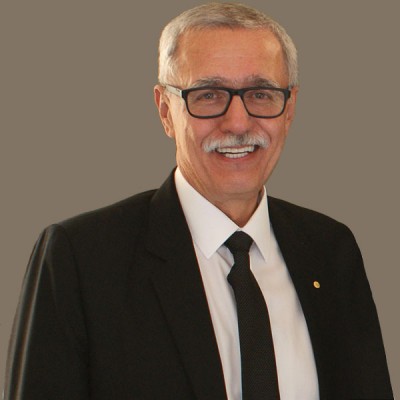
Philip Wollen is someone very special. He is a big man with a big heart and most importantly he's BIG on vision. Phil is a philanthropist, OAM, Queens Birthday Honours 2005, Australian of the Year Victoria 2007 and Founder of The Winsome Constance Kindness Trust (WCKT) www.kindnesstrust.com.
Leave a Comment